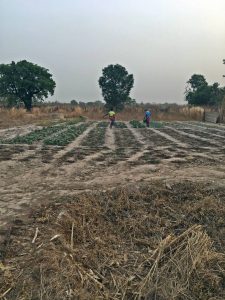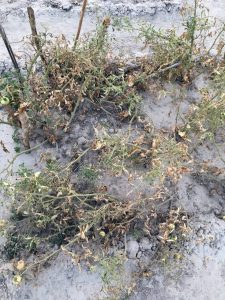This project is made possible through the partnership of WATER CHARITY and the NATIONAL PEACE CORPS ASSOCIATION. ![]()
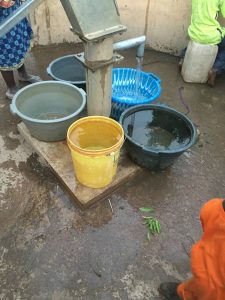 Location
Location
This project summary has been redacted for security reasons to omit the specific project location.
Xxx Xxxxxx, Kedougou, Kedougou Region, Senegal
Community Description
Xxx Xxxxxx is a rural farming village wedged in the lowlands between the Gambia River and one of its tributaries. There are remnants of the once lush landscape, with small groves of wild Shea trees, Maad fruit, teak, palm, and baobab. Rice and cornfields surround the village and make a carpet of neon green in the first weeks after seeding.
It is a Jaxanke community, an ethnic minority, and a group that has been persecuted in the past, and is now neglected by the government. In the Jaxanke language, a common greet is, “mun be diyalin?” which translates as “what is sweet?” The typical Dar Salaam response is “Barro Doron,” or “work only,” in English. Clearly, they are motivated and desire to work.
Being a group that is an ethnic minority, Xxx Xxxxxx is often overlooked by the government. This equates to a population that is uneducated and unable to access resources that other communities are entitled to. For instance, the village does not have a government-built, cement structure for a school, which many of the surrounding, majority Pular communities have, even though the bamboo shack, which now functions as a schoolroom, houses more students than most buildings in the neighboring villages.
Xxx Xxxxxx is a community that is seeking a more prosperous life but has a hard time imagining one in Senegal. They see trees chopped down, and encroaching deforestation that destabilizes land and makes finding fuel more difficult. They know it is hard to find a well-paid job without a basic education, yet, still seek jobs abroad. Every young man must at least attempt a trip to Europe, where they see images of prosperity, regardless of the perils en route and the unskilled labor that awaits them.
Those who remain inexhaustibly toil in rice fields, dependent on increasingly unpredictable rains, scavenger the bush for wild meat and cooking fuel that is increasingly rare, and pray that their efforts will be rewarded in this life or the next.
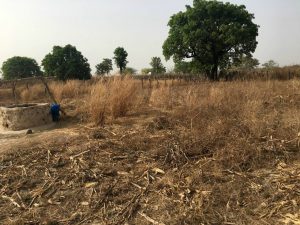 Problem Addressed
Problem Addressed
Xxx Xxxxxx, like many rural communities in Africa, lacks sufficient water. The exploding population relies, on one hand, on pump well as their only source of tested, clean, and potable water. Although other wells exist across the community, they all run dry during the two months of extreme heat and dryness.
This timing is also referred to as “Starve Season” because gardens die, forageable food is depleted and storage supplies are low. In an attempt to increase their access to food, and generate a small income, some women use the one pump to water their garden beds throughout the dry season. It is often a futile effort. Women get fed up with waiting in long lines at the pump each day to fill their watering buckets, and give up on their vegetables before they fruit.
To compound the problem, young women are required to wait hours in line to fill their families’ drinking water buckets, which keeps them from valuable daylight hours when they could otherwise do their homework or play with friends.
Project Description
This project is to deepen a well, build three basins, install a solar water pump, and teach improved gardening techniques.
The PCV, Community President Mamadou Minté, and Women’s Group President Mariama Ba will ensure timely implementation of all projects, including:
-Create tree nursery with fruit and live-fence species; implemented by Xxx Xxxxxx Women’s Group and involves filling three sacks and watering them.
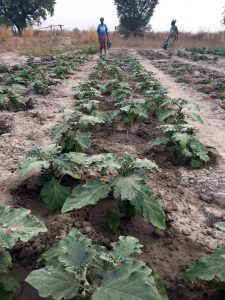 -Build elevated basin foundations and dig trenches for PCV pipe; implemented by the men of Xxx Xxxxxx and involves filling tires with packed earth.
-Build elevated basin foundations and dig trenches for PCV pipe; implemented by the men of Xxx Xxxxxx and involves filling tires with packed earth.
-Transport Materials from Kedougou to Xxx Xxxxxx; implemented by the young men of the community who work with donkey carts.
-Deepen Well; implemented by Babacar Keita a well digger who will deepen the well five meters and secure it with molds.
-Construct Basins; implemented by mason Babacar Djallo and his apprentice.
-Install Solar Pump; implemented by Technician Cherno Djallo and team and includes creating a cement box to protect equipment, and well cover.
-Transplant Trees; implemented by the women of Xxx Xxxxxx and includes both a live fence and small orchard.
-Construct Garden Beds; implemented by members of the Xxx Xxxxxx Women’s Group.
-Improved Gardening Technologies Trainings; implemented by the PCV. and PC Master Farmer Mamadou Minté including training in composting, double digging, pest management, spacing, seed selection, and storage, etc.
Project Impact
267 people will benefit from the project.
Peace Corps Volunteer Directing Project
W. Benjamin
Monitoring and Maintenance
The PCV will oversee, monitor and report on the project. It is likely that he will be replaced by another volunteer once his contract is completed.
To ensure that this is a sustainable project, a section of the community garden will be dedicated to low-maintenance, collective crops that can be sold as a group and stored in the Xxx Xxxxxx Women’s Group’s cash box. This fund will be used to maintain the improvements, and perform necessary repairs.
Two women, from opposite sides of the village, have keys to distinct locks, to ensure that funds are not being misused. Unlike a motor-pump that runs on gasoline, this solar-powered well will not require daily expenses to pump water into the watering basins.
Let Girls Learn
This project will free up time that young girls traditionally spend waiting in line to pump potable water for their families, making it easier for them to remain in school.
Conclusion
This project became infeasible, and the project was terminated. There was no expenditure or loss of funds.
Any donations will be utilized for other projects in Senegal.
